ST PAUL, Minn — “The TV kept saying take your opportunity,” Joseph Sandoval told police as he was being loaded into a squad car. “TV said they were going to kill me.”
Saint Paul Police had rushed to a Lawson Avenue sober home for a reported murder on Oct. 20, 2022. They soon spotted Sandoval in the alley covered in blood. Inside the home officers found two victims – killed with a knife and hammer.
Jon Wentz, an Army Veteran, had been living at the sober home, finally clean and ready to restart his life. Jason Murphy was a handyman who happened to be working there that day.
“It just doesn’t make sense,” said Murphy’s mother Marsha.
Her biggest question: Why was Joseph Sandoval even at the sober home?
Sandoval himself told investigators he wasn’t where he belonged. “I’m supposed to be in a hospital,” he explained. “I’m not even supposed to be outside.”

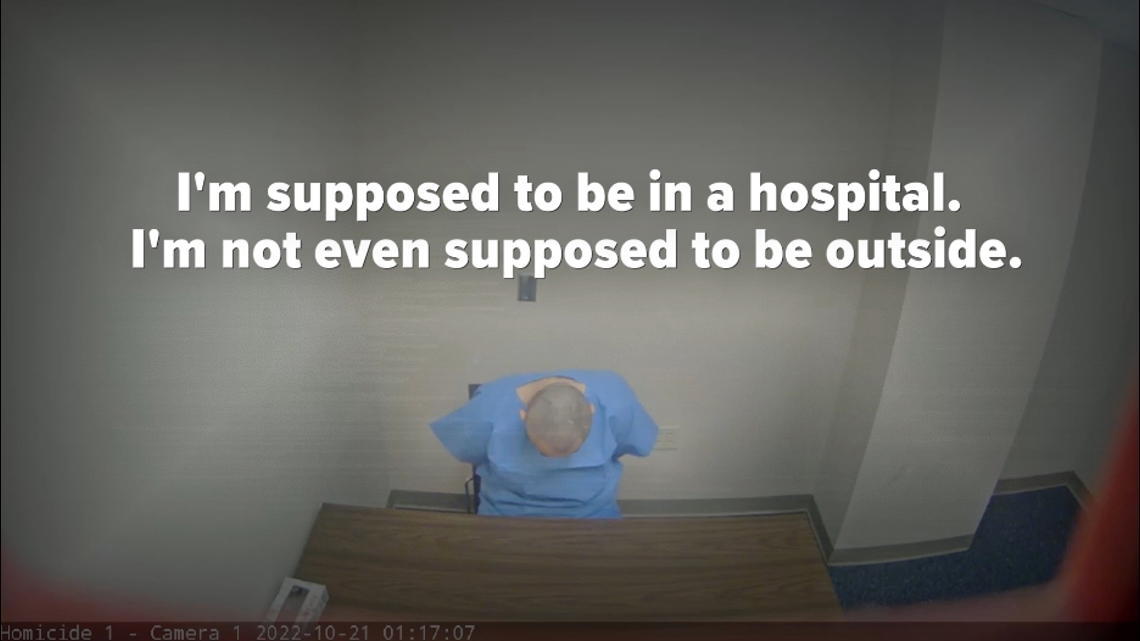
He was right.
At the time of the murders, Sandoval was under a court-ordered Civil Commitment. He had a known history of severe mental illness, drug-induced psychosis, and violence.
How and why Joseph Sandoval was set free to commit a double murder is a story of staff shortages, allegedly falsified records, treatment failures and gaps in Minnesota’s criminal justice and mental health systems.
History of violence
Records show after his arrest, Sandoval asked to have both legs shackled to a hospital bed because: “I don’t know what I’ll do.”
His past proves that.
Two years before the sober home murders, 911 operators received a frantic call about a man covered in blood. “I just had a guy burst through my door and smash a couple of my windows.”
Bryan Plunger’s Minneapolis home had been invaded by a man having a mental health crisis.
“My immediate impression was, whoa, this guy needs some help!” he told KARE 11.
Police came and took Joseph Sandoval to Hennepin County Medical Center, but he didn’t stay long. Weeks later, he attacked people with a knife.
This time, Sandoval was taken to jail. While there, he beat another inmate with a broom in an unprovoked attack.
Incompetent to stand trial
Charges in that case were eventually dismissed because Sandoval was found mentally incompetent to stand trial. He was released – and his violence escalated.
Joseph stole a cab, led police on a wild chase, and slammed into a pedestrian.
Not once – but twice.
Video from a police helicopter hovering overhead shows the stolen taxi crash into a man, backup, then drive directly at the injured man lying on the ground hitting him again.


“I’m a dude on the ground and he drives directly for me,” Dylan Swisher said.
“Did you think he was trying to kill you?” KARE 11 asked.
“Yes,” Swisher replied.
Once again, Sandoval was found incompetent to stand trial.
Civil commitment
This time a judge ruled that Sandoval “engages in grossly disturbed behavior” and “poses a substantial likelihood of causing physical harm.”
The judge civilly committed him to the care of the Minnesota Department of Human Services which sent him to state-run, locked, supervised treatment in Anoka.
But records show “Due to staff shortages” Sandoval was discharged to Evergreen Recovery, an out-patient program in St. Paul where he was free to come and go as he pleased.

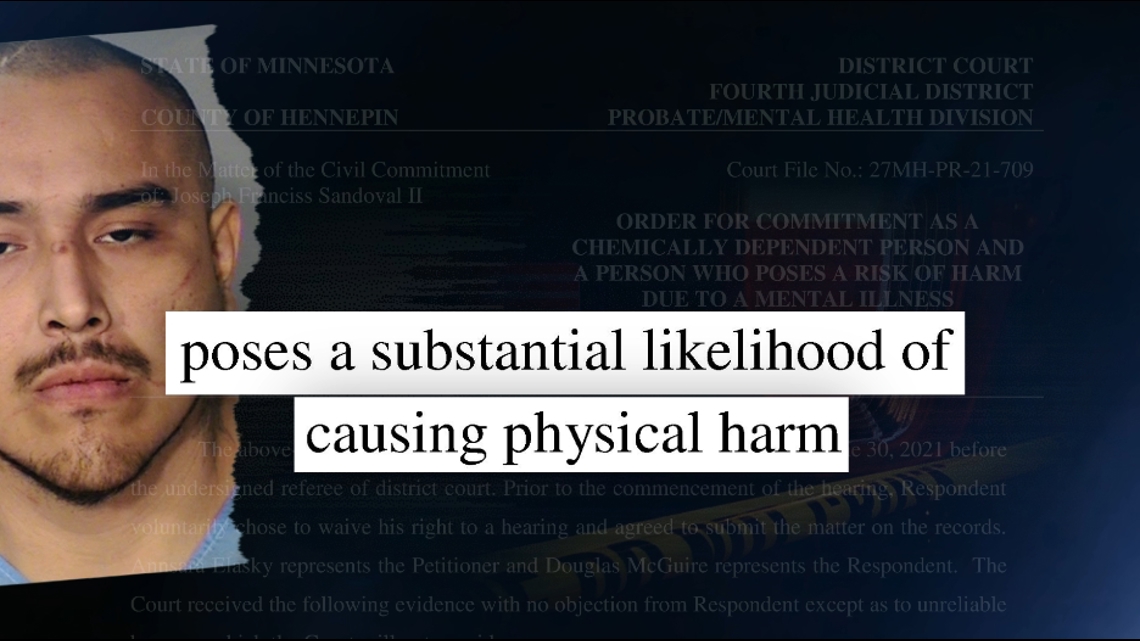
KARE 11’s investigation discovered that Evergreen – and its network of affiliated sober homes – was an environment where violence and drug use was common. Police records show dead people found inside their sober homes – overdosed – was an all too frequent occurrence.
Evergreen billed itself as a “harm reduction” program where abstinence from drugs was encouraged – but not required.
Clients – and even some employees – referred to it by the nickname “Never clean.”
Drug use and false records
At Evergreen, his attorney says Joseph Sandoval repeatedly tested positive for drugs and his treatment records “appear to be copied and pasted from week to week.”
“I saw this all the time with people at Evergreen. They weren’t getting treatment,” said Daniel Dwyer, a licensed drug counselor who worked at Evergreen. “They were being billed for treatment but they weren’t getting treated.”
Dwyer says he quit working at Evergreen in 2023 when he discovered evidence of false billing.
But he didn’t know – until KARE 11 showed him – that his name appeared on Sandoval’s records on the day of the murders.

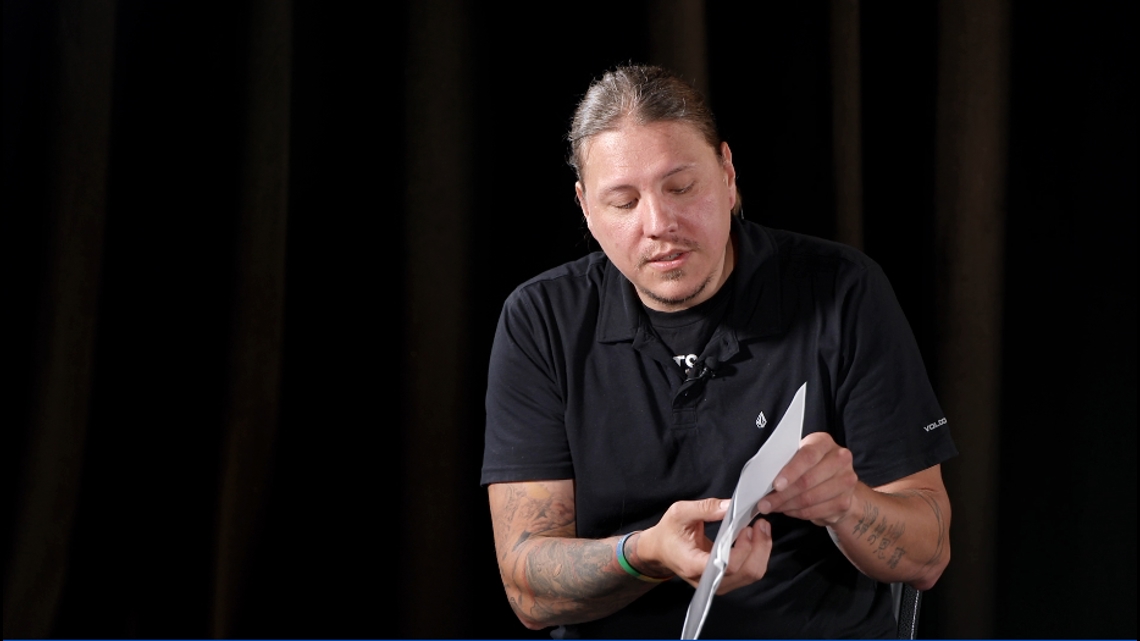
KARE 11 uncovered internal Evergreen records that claimed Joseph Sandoval was in a group treatment session – led by Dwyer – ending at 4:15 p.m. on Oct. 20, 2022. The records state, “Client appeared to participate in group.”
“Was it possible for Joseph Sandoval to be in your group at 4:15?” KARE 11 asked.
“It was not possible,” Dwyer replied.
Not possible – because that’s the same time Sandoval was six miles away committing the double-murders.
“I clearly did not make this,” Dwyer said as he reviewed the treatment record. It was signed not by him, but by one of Evergreen’s owners – Shawn Grygo.

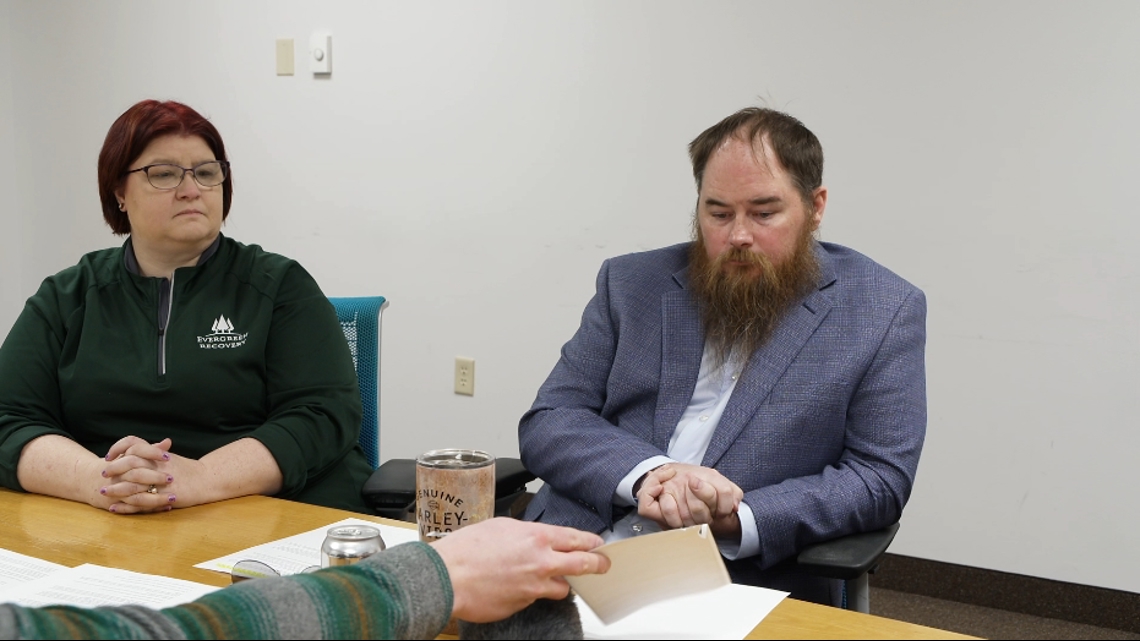
Later, Backus produced another record showing that six days after the murders, Evergreen changed the original record – and marked Sandoval absent from treatment that afternoon.
“Nothing was billed for it,” Backus said.
However, the internal Evergreen records show on the day of the murders, Evergreen billed Medicaid for providing Sandoval “peer services.”
Minnesota law mandated peer services be provided one-to-one.
A prior KARE 11 investigation exposed Evergreen falsely billing group activities as if they were a series of individual interactions. This practice, which Evergreen claimed to be legal, allowed their peers to bill astronomical amounts. KARE 11 documented one case where a peer provider billed for 203 hours of work in a single day.
The Evergreen employee whose name was listed as providing Sandoval peer services on the day of the murder confirmed to KARE 11 that she met with a group of people that day and did not provide one-to-one service for Sandoval.
This meant she did not have the opportunity to notice if his mental state was deteriorating in the hours before the murders.
“Just bill, bill, bill.”
Former employees and clients claim Evergreen routinely billed taxpayer-funded Medicaid for treatment that never happened, or did not happen as claimed.
“It appeared to me that it was just a way to make more money and just bill, bill, bill,” said Tracy Doerr, a Licensed Alcohol & Drug Counselor (LADC) who worked as a treatment supervisor at Evergreen Recovery until quitting in September 2023. Doerr says he shared his concerns about false billing with state and federal authorities.
Clients who requested copies of their treatment records told KARE 11 they found examples of services that were not provided as billed.

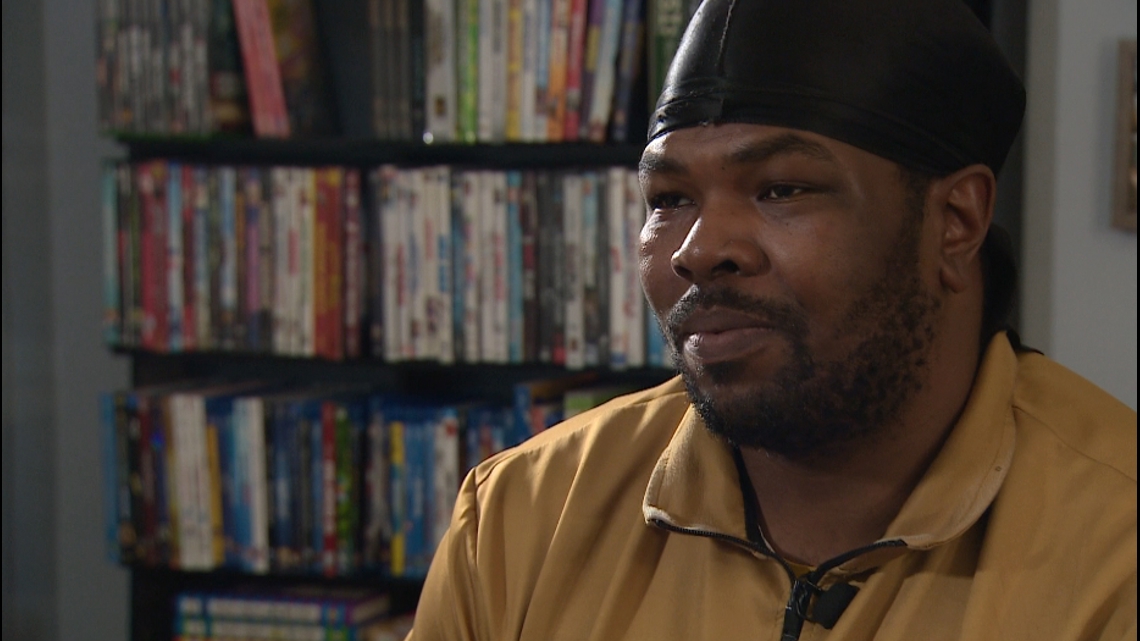
“I was not in group all of those days,” former client Quamari Robinson said after reviewing copies of bills submitted in his name.
“I wasn’t in group (therapy sessions) that many times, there’s no way,” he said.
“What would you call this then?” KARE 11 asked.
“Falsified records,” he replied.
At the time, social media posts showed Evergreen’s owners were living a lavish lifestyle with high-dollar cars and travel on private jets.
Federal investigation
In the wake of KARE 11’s reports, the FBI raided Evergreen. In an affidavit filed with the court, the FBI agent supervising the investigation alleged that Evergreen is “responsible for at least $28 million in fraudulent billing dating back to 2017.”
The agent wrote he is assigned to “parallel civil and criminal investigations.” In August, KARE 11 reported a federal grand jury had begun issuing subpoenas. Daniel Dwyer is among those called to testify.


To date, Evergreen’s owners deny all wrongdoing.
“We didn’t steal millions of dollars bro – read the state statute. Have a good f*** life,” said Shawn Grygo as she arrived for a court hearing where a federal judge froze Evergreen’s assets.
Guilty plea
Eleven days before the FBI raid, Joseph Sandoval pleaded guilty to murders he says he doesn’t remember committing. Citing the multiple treatment failures, his lawyer told the court that Sandoval is “not alone in responsibility for the loss of life.”
More than two years after the seemingly incomprehensible murders, answers about how and why it happened are finally coming to light. For a grieving mother, though, answers don’t fill voids.
“I love this picture,” said Marsha Murphy as she pointed to a photo of her son. “I feel like he’s smiling at me every day.”
With tears in her eyes and a catch in her voice, she stared at the picture, recalling “It was our last day together.”



